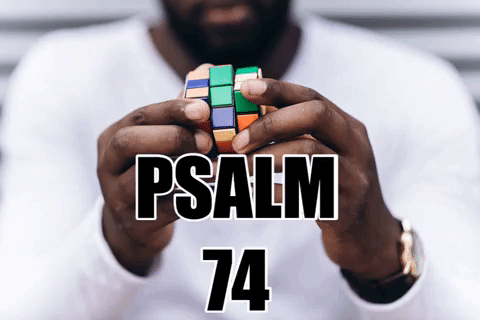HIGH FIVE!

In Islam, the Book of Psalms (known as “Zabur” in Arabic) holds a special place as one of the revealed scriptures. While the entire Psalms collection is not explicitly mentioned in the Quran, certain themes and verses from Psalms resonate with Islamic teachings. Here are some points of significance:
- Common Prophetic Heritage: Muslims believe in the continuity of prophethood from Adam to Muhammad. As such, the Psalms are attributed to Prophet David (Dawud in Arabic), who is revered as a prophet in Islam. Muslims recognize David as a righteous king, poet, and musician.
- Spiritual Guidance: Although the Quran is the primary source of guidance for Muslims, they acknowledge the divine origin of the Psalms. The Zabur is considered a predecessor to the Quran, and its verses are believed to contain wisdom, supplications, and praises to God.
- Themes Shared with the Quran:
- Tawhid (Monotheism): Psalms emphasize the oneness of God (Allah) and His sovereignty. Muslims find resonance in verses that exalt God’s greatness and emphasize reliance on Him.
- Praise and Gratitude: Many Psalms express gratitude, praise, and awe toward God’s creation. Muslims also engage in similar acts of worship, including daily prayers (Salat) and supplications (Du’a).
- Seeking Refuge: Psalms often seek refuge in God from enemies, distress, and hardship. Muslims recite similar prayers seeking God’s protection and guidance.
- Repentance and Forgiveness: Psalms contain pleas for forgiveness and repentance. Muslims also seek God’s forgiveness and turn to Him in times of remorse.
- Shared Figures: The Quran mentions several prophets, including David (Dawud), Solomon (Sulaiman), and others. Their stories and virtues are shared across both scriptures.
- Literary and Poetic Value: Muslims appreciate the poetic beauty and eloquence of the Psalms. The Zabur’s lyrical style resonates with Arabic poetry, which holds a significant place in Islamic culture.
- Interfaith Dialogue: Some scholars engage in comparative studies between the Psalms and the Quran, fostering interfaith dialogue and understanding.
In summary, while the Psalms are not recited in daily Islamic rituals, their spiritual and historical significance connects Muslims to a shared Abrahamic heritage. Muslims respect the Psalms as part of divine revelation and appreciate their timeless messages of faith, hope, and devotion. 🙏✨

YEAH!!!

